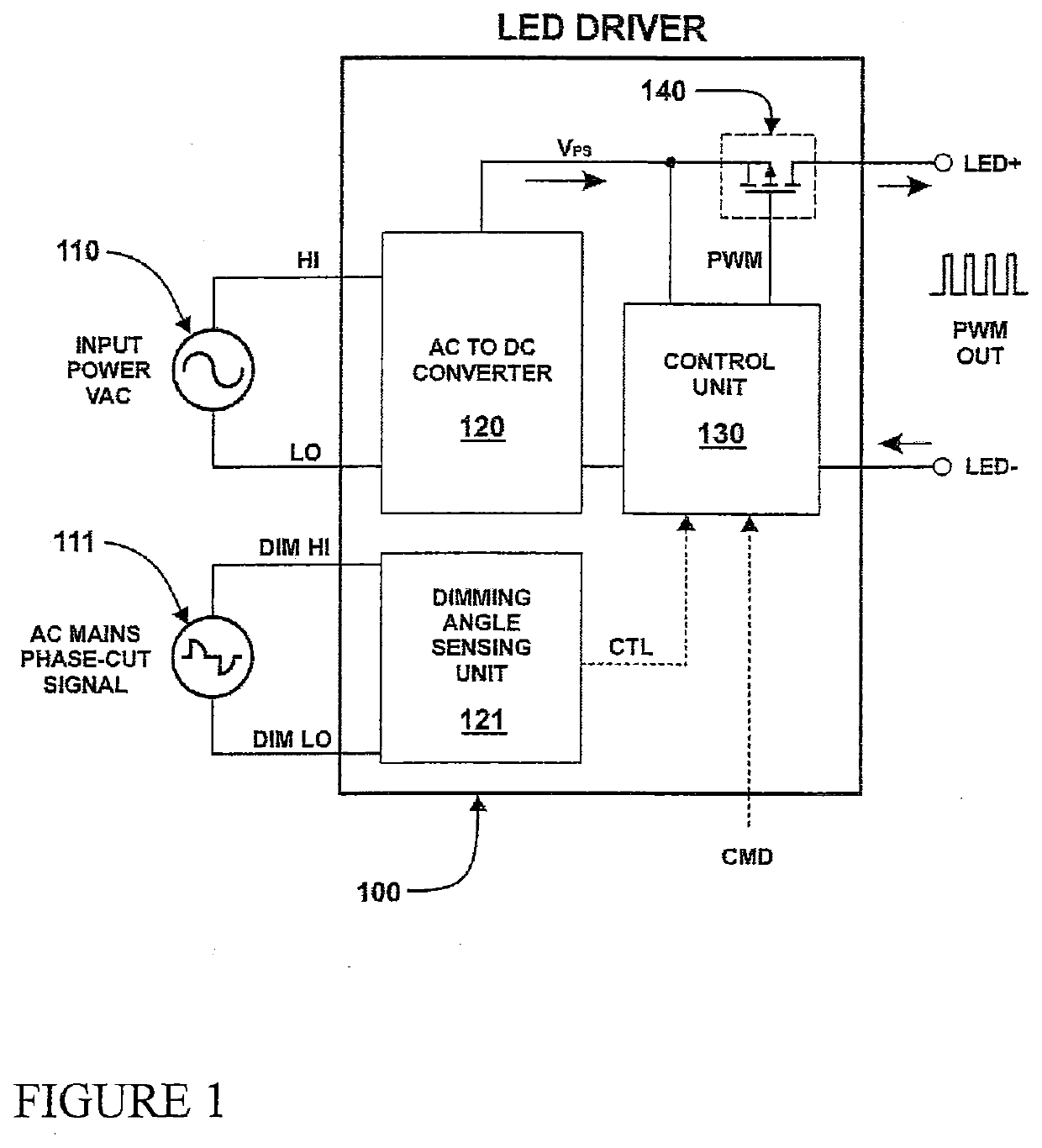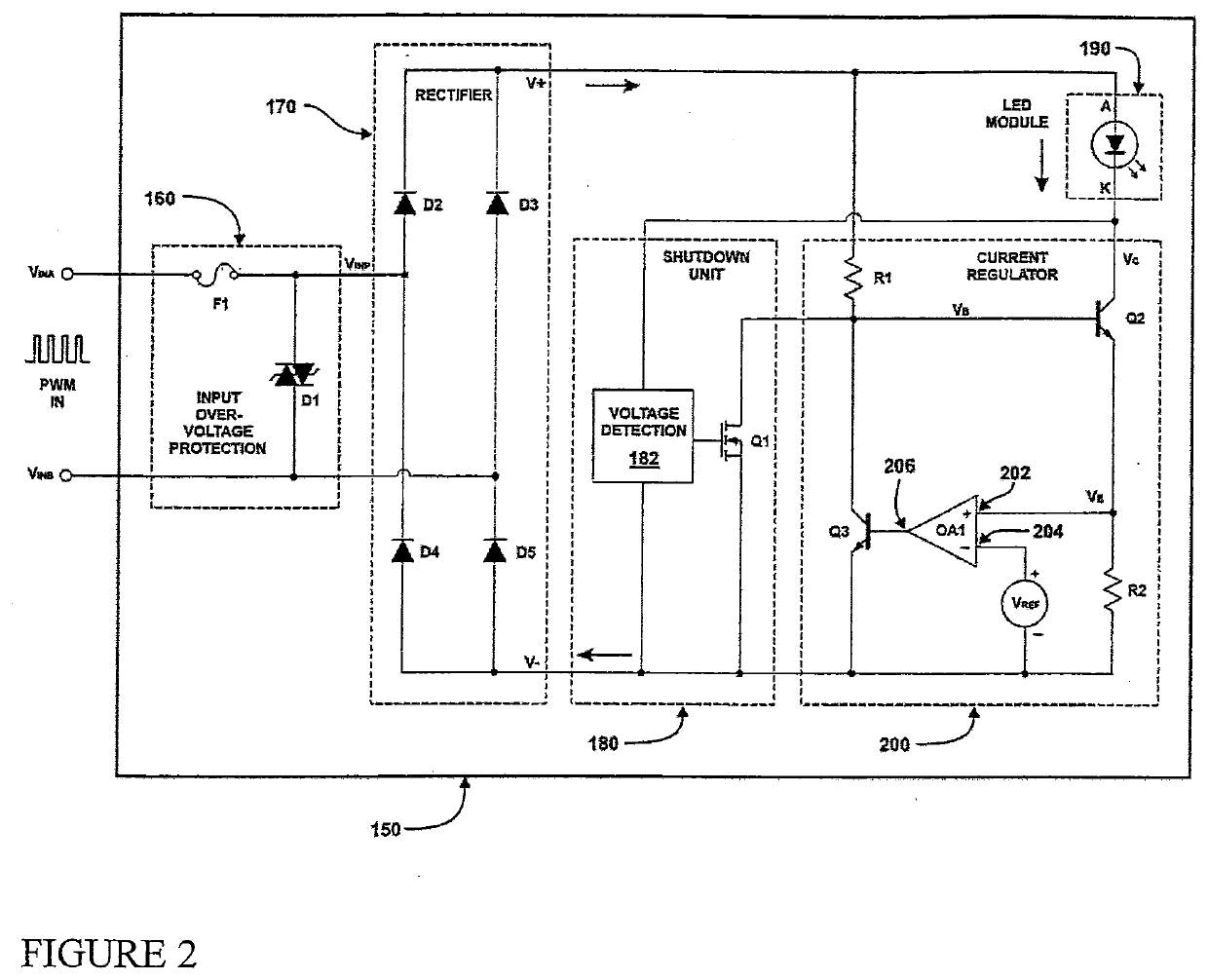System and method for repurposing 120vac wiring architecture to retrofitable low voltage DC power 2-wire LED dimming
a technology of led dimming and wiring architecture, applied in the field of led dimming, can solve the problems of low-end gradient performance deterioration, low-level gradient performance deterioration, and existing led lamp retrofit (screw-in) dimming designed to be dimmed by phase cut or sine wave dimmers, etc., to achieve consistent low-level gradient performance, short on-time pwm signals, and high dimming ratio
- Summary
- Abstract
- Description
- Claims
- Application Information
AI Technical Summary
Benefits of technology
Problems solved by technology
Method used
Image
Examples
Embodiment Construction
[0019]FIG. 1 shows LED driver 100 which is electrically connected to an AC power source 110. The LED driver 100 output terminals LED+ and LED− electrically connect to a plurality of LED lamps 150 as described in FIG. 2. The AC power source 110 is electrically connected to the AC to DC converter 120 where the AC power is converted to filtered and regulated DC power VPS for the control unit 130 and the power switch 140.
[0020]The power switch 140 is electrically connected to the AC to DC converter 120 DC power output VPS. The control unit 130 is electrically connected to the power switch 140. The power switch 140 is turned ON or OFF according to the pulse width modulation PWM signal from the control unit 130 in order to connect or disconnect the DC power (VPS) from the AC to DC converter 120 to the positive output terminal LED+ of the LED driver 100. In the present disclosure, the power switch 140 may be implemented with a P-type metal-oxide semiconductor (PMOS), in which the gate term...
PUM
 Login to View More
Login to View More Abstract
Description
Claims
Application Information
 Login to View More
Login to View More - R&D
- Intellectual Property
- Life Sciences
- Materials
- Tech Scout
- Unparalleled Data Quality
- Higher Quality Content
- 60% Fewer Hallucinations
Browse by: Latest US Patents, China's latest patents, Technical Efficacy Thesaurus, Application Domain, Technology Topic, Popular Technical Reports.
© 2025 PatSnap. All rights reserved.Legal|Privacy policy|Modern Slavery Act Transparency Statement|Sitemap|About US| Contact US: help@patsnap.com


